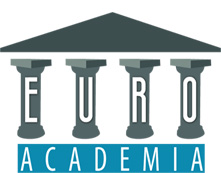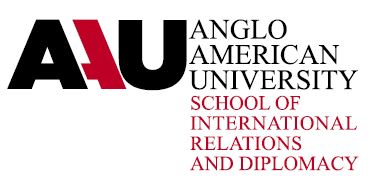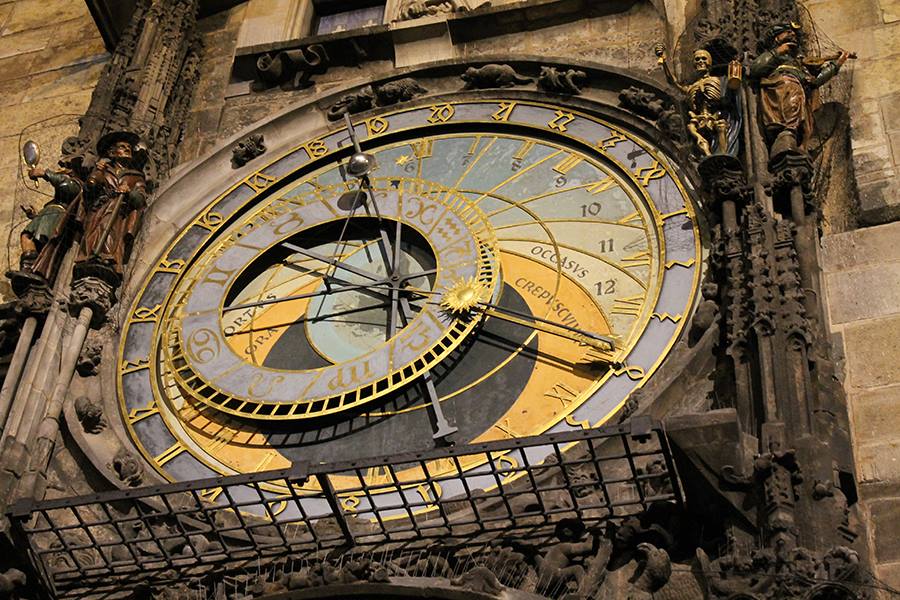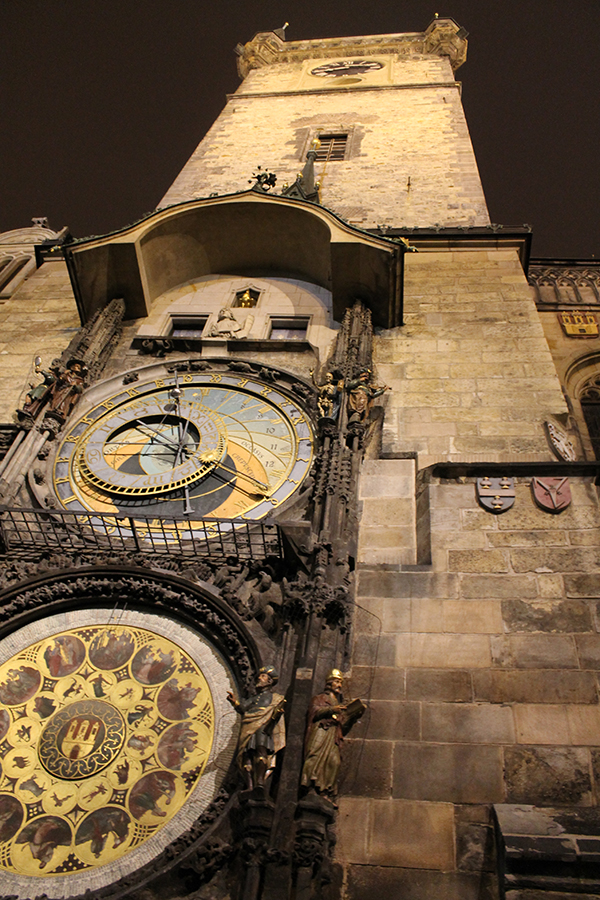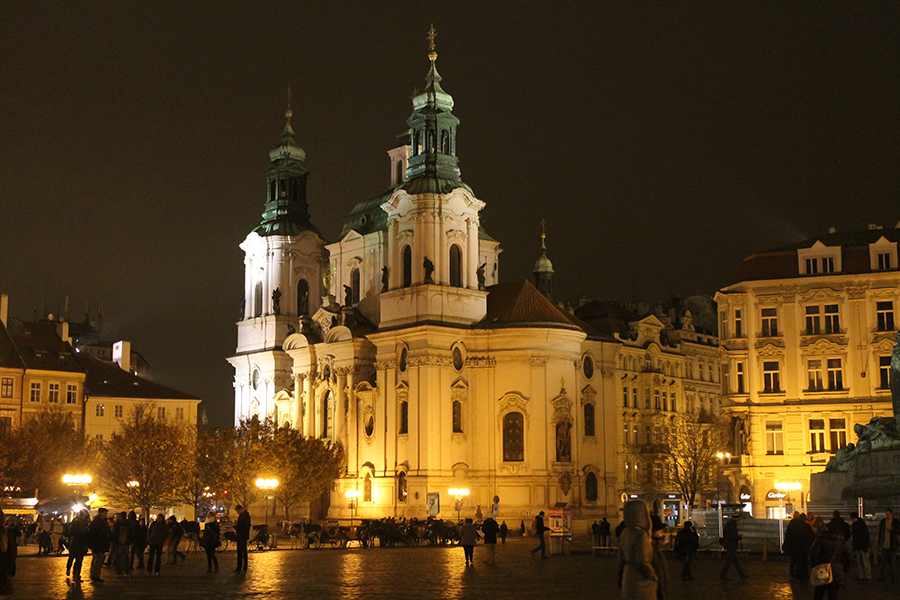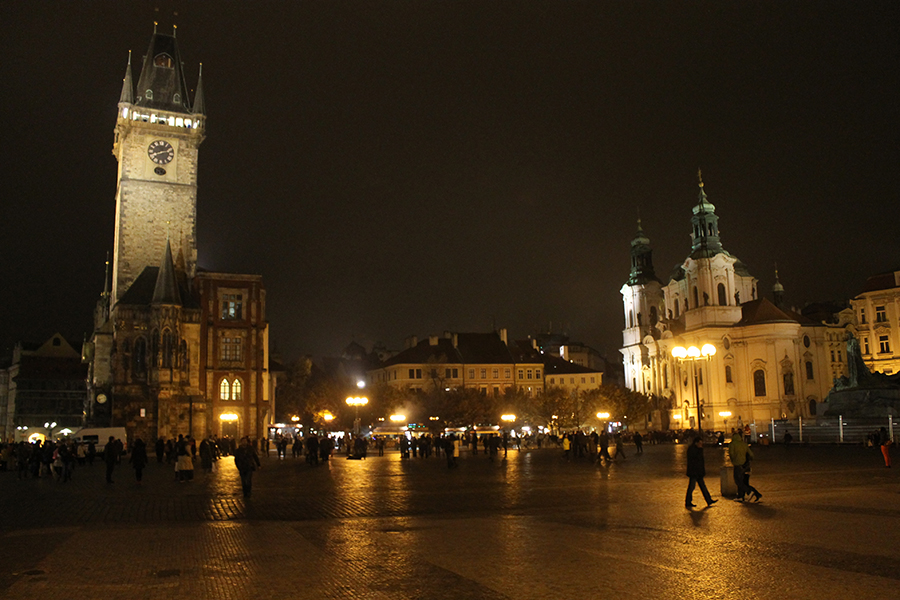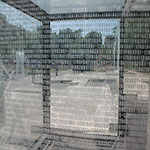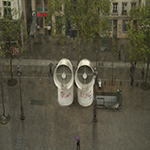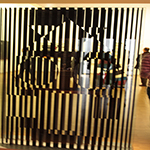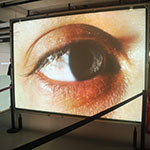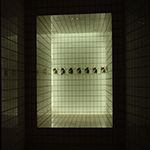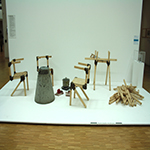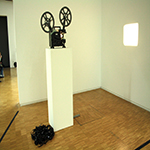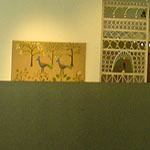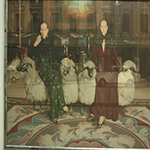Anglo American University Prague
Letenska 5, 118 00 Prague, Czech RepublicConference Program
- November 27, 2015
- 09:00 - 09:30Registration (Registration Desk)
- 09:30 - 10:30Welcome and Opening Remarks - Opening Workshop: The EU and the Politicization of Europe
- 10:30 - 11:00Coffee Break and Snacks
- 11:00 - 13:00Panel 1: The State of the Union: Legitimacy, Values and Political Choices in the Making of the European Union
- 13:00 - 14:30Lunch - 5* Augustine Restaurant
- 14:30 - 16:30Panel 2: European Cultural Diplomacy Instruments: From Art Exhibitions, Cultural Institutes to Social Media as Public Diplomacy Tools
- 16:30 - 17:00Coffee Break and Snacks
- 17:00 - 19:00Panel 3: Assessing the EU’s Normative Influence: Foreign Policy, Trade Partnerships and Neighborhood Policy
- 19:00 - 19:45Welcome Drink
- 19:45 - 21:00Optional Social Dinner – Typical Czech Restaurant
- November 28, 2015
- 08:30 - 10:30Panel 4: Parties, Elections, Voter Turnout and Attitudes towards European Integration
- 10:30 - 11:00Coffee Break and Snacks
- 11:00 - 13:00Panel 5: Cultural Diplomacy and Change: Past, Memory and Cultural Heritage in Europe – Visual Arts, Literature and Urbanism
- 13:00 - 14:30Lunch - 5* Augustine Restaurant
- 14:30 - 16:30Panel 6: The Multiple Facets of the Ongoing European Crisis
- 16:30 - 17:00Coffee Break and Snacks
- 17:00 - 19:00Panel 7: National and Regional Perspectives: Europeanization, Protest, Social Change and Migration
- 19:00 - 19:30Concluding Remarks and Discussions
- 19:00 - 19:30Optional Social Dinner – Typical Czech Restaurant
- November 27, 2015
Future Events
 Europe Inside-Out: Europe and Europeanness Exposed to Plural Observers (9th Edition) April 24 - 25, 2020
Europe Inside-Out: Europe and Europeanness Exposed to Plural Observers (9th Edition) April 24 - 25, 2020 Identities and Identifications: Politicized Uses of Collective Identities (9th Edition) June 12 - 13, 2020
Identities and Identifications: Politicized Uses of Collective Identities (9th Edition) June 12 - 13, 2020 8th Forum of Critical Studies: Asking Big Questions Again January 24 - 25, 2020
8th Forum of Critical Studies: Asking Big Questions Again January 24 - 25, 2020 Re-Inventing Eastern Europe (7th Edition) December 13 - 14, 2019
Re-Inventing Eastern Europe (7th Edition) December 13 - 14, 2019
The European Union and the Politicization of Europe (Fourth Edition)

- Conference Description
- Participant’s Profile
- Registration and Fee
- Social Activities and Publication
- Important Dates
- Venue and Directions
- Conference Program
- Panel 1
- Panel 2
- Panel 3
- Panel 4
- Panel 5
- Panel 6
- Panel 7
Euroacademia
and
Anglo American University, Prague
School of International Relations and Diplomacy
The Fourth International Conference
The European Union and the Politicization of Europe
27 – 28 November 2015
Anglo American University, Prague, Czech Republic
Conference Description
The European Union was described by Jacques Delors as an unidentified political object and by Jose Manuel Barroso as the first non-Imperial empire. The descriptors assigned to the European Union are creative and diverse yet the agreement on what is the actual shape that the EU is taking is by no means an easy one to be achieved. Historical choices shaped and reshaped the size and functioning of the EU while the goal of an emerging ‘ever closer union’ is still in search for the paths of real and not ideal accomplishment. The agreement seems to come when it’s about the growing impact of the decisions taken in Brussels on the daily lives of the European citizens and the increasingly redistributive outcomes of the policy choices inside the EU. These dynamics created the framework for the politicization of Europe and opened a vivid debate about the direction and proportions of such a process.
The politicization of Europe takes various shapes and addresses significant puzzles. While it is clear that the EU doesn’t resemble a state it is less clear if the decisions that shape its policies are configured by Pareto efficient outcomes or by dynamics that are intrinsic to a political system and defined by emerging party politics within the European Parliament. The democratic problem or the democratic deficit issue was and continues to be one of the main challenges facing the European Union in any terms or from any position is understood or described. The problem of accountability for the decision making inside the EU was there from the beginning and it emerged gradually as more emphatic on the agenda of vivid debates as the powers of the EU have grown after the Maastricht Treaty. This was concomitant with a growing disenchantment of citizens from member states with politics in general, with debates over the democratic deficits inside member states, with enlargement and with a visible and worrying decrease in voters’ turnouts at both national and especially European elections. The optimist supporters of EU believe in its power to constantly reinvent and reshape while the pessimists see either a persistence of existing problems or a darker scenario that could lead in front of current problems even to the end of the EU as we know it.
The Fourth International Conference ‘The European Union and the Politicization of Europe’ aims to survey some of these current debates and addresses once more the challenges of the EU polity in a context of multiple crises that confronted Europe in recent years. It supports a transformative view that involves balanced weights of optimism and pessimism in a belief that the unfold of current events and the way EU deals with delicate problems will put an increased pressure in the future on matters of accountability and will require some institutional adjustments that address democratic requirements for decision making. However in its present shape and context the EU does not look able to deliver soon appropriate answers to democratic demands. In a neo-functionalist slang we can say as an irony that the actual crisis in the EU legitimacy is a ‘spillover’ effect of institutional choices made some time before. To address the EU’s democratic deficit however is not to be a skeptic and ignore the benefits that came with it but to acknowledge the increasing popular dissatisfaction with ‘occult’ office politics and with the way EU tackles daily problems of public concern while the public is more and more affected by decisions taken at the European level.
Is the EU becoming an increasingly politicized entity? Is the on-going politicization of Europe a structured or a messy one? Do political parties within the European Parliament act in a manner that strengthens the view of the EU as an articulate political system? Are there efficient ways for addressing the democratic deficit issue? Can we find usable indicators for detecting an emerging European demos and a European civil society? Does a Europeanization of the masses take place or the EU remains a genuinely elitist project? Did the Lisbon Treaty introduced significant changes regarding the challenges facing the EU? Can we see any robust improvements in the accountability of the EU decision making processes? Are there alternative ways of looking at the politicization processes and redistributive policies inside the EU? These are only few of the large number of questions that unfold when researchers or practitioners look at the EU. It is the aim of the Fourth International Conference ‘The European Union and the Politicization of Europe’ to address in a constructive manner such questions and to offer o platform for dissemination of research results or puzzles that can contribute to a better understanding of the on-going process of politicization within the European Union.
The conference is organized by Euroacademia in cooperation with the School of International Relations and Diplomacy from the Anglo American University in Prague, Czech Republic.
Participant’s Profile
The conference is addressed to academics, researchers and professionals with a particular interest in Europe, Europe related and European Union topics from all parts of the world. As the nature of the conference is intended to be multidisciplinary in nature, different academic backgrounds are equally welcomed. Cultural approaches, political studies, critical studies, out of mainstream approaches and artistic/literary contributions to the better understanding of Europe in its past present and future dimensions are all equally welcomed. Euroacademia favors alternative and innovative thinking proposals and non-mainstream methodologies.
Post-graduate students, doctoral candidates and young researchers are welcomed to submit an abstract. Representatives of INGOs, NGOs, Think Tanks and activists willing to present their work with impact on or influenced by specific understandings of Europe and/or the European Union are welcomed as well to submit the abstract of their contribution.
Abstracts will be reviewed and the participants are selected based on the proven quality of the abstract. The submitted paper for the conference proceedings is expected to be in accordance with the lines provided in the submitted abstract.
Registration and Fee
Registration process is closed
The Participation Fee Includes:
- the registration fee
- participant’s package with all the materials for the conference
- full access to the conference proceedings
- inclusion in the conference proceedings published volume
- a copy of the published volume
- access to Euroacademia discussion group and newsletters
- coffee brakes and refreshing drinks for all the duration of the conference
- welcome drink on 27th of November 2015
- a 3 course chef signature lunch in the 5* Augustine Restaurant on 27th of November 2015
- a 3 course chef signature lunch in the 5* Augustine Restaurant on 28st of November 2015
- certificate of attendance
- access to optional social program
- Optional visit to the Franz Kafka Museum on Sunday 29th of November
Unfortunately, Euroacademia has no available funds for covering transport and accommodation to/in Prague. Participants are responsible for securing funding to cover transportation and accommodation costs during the whole period of the conference. Official invitation letters can be sent by Euroacademia to the financing institutions of selected participants to confirm the selection and participation in the conference upon request.
Social Activities
A specific spot in the conference program will be dedicated to social networking and therefore all the participants interested in setting or developing further cooperation agendas and prospects with other participants will have time to present and/or promote their project and express calls for cooperation.
A specific setting (Social Corner) for promotional materials connected with the topic of the conference will be reserved for the use of the participants. Books authored or edited by the participants can be exhibited and promoted during the whole period of the conference and can also be presented within the conference package based on prior arrangements.
Photos and videos will be taken during the conference and the organizers will consider through the participation of selected presenters or members of the audience that the agreement for being photographed or filmed during the event was granted through registration to the event. Please notify the organizers in written form prior to the the event if you are a confirmed participant and would prefer otherwise.
An optional dinner and a social event will be organized for the first and second evenings of the conference in a typical Czech cuisine restaurant as optional program for the willing participants. The social dinner will be held based on participant’s confirmation and it costs around 15 Euro to be covered individually by participants.
Publication:
Selected papers will be published in an electronic volume with ISBN after the confirmation of the authors and a double peer-review process based on an agreed publication schedule. All the papers selected for publication should be original and must have not been priory published elsewhere. All participants to the conference will receive a copy of the volume.
Specific selected papers will be also published in CEJISS (Central European Journal of International & Security Studies)
About CEJISS
Formally launched in January 2007, CEJISS is designed as a double-destination scholarly bridge. The first bridge was constructed with Central Europe (Czech Republic, Hungary, Poland and Slovakia) in mind, focusing on increasing the audience for Central European scholars. In this regard, CEJISS is making a substantial impact as each issue attracts attention in some 45,000 people in nearly 160 countries. However, CEJISS is not Central European centric and invites scholars from around the world to contribute. This has meant that just as Central European scholars now have an easier time gaining a footing outside of the region, so international scholars also have an easier time getting in and making an impact here. With a mere two decades separating our times from the ‘darker’ Cold War years, CEJISS aims to contribute English language perspectives to the peoples of Central Europe and give the latter the amplification their research deserves.
| Important Dates | |
|---|---|
| 1st of October 2015 | Deadline for Submitting Panel Proposals |
| 15th of October 2015 | Deadline for Paper Proposals: 300 words abstracts and details of affiliation |
| 16th of October 2015 | Latest notification of acceptance |
| 20th of October 2015 | Sending the Registration Form |
| 26th of October 2015 | Payment of the conference fee |
| 10th of November 2015 | Sending the draft paper to be uploaded on the conference website |
| 15th of November 2015 | Publication of the conference program and uploading the draft papers on the website |
| 27th of November 2015 | The conference commences at 9.00 am |
Venue and Directions
The conference will take place in the beautiful premises of the Anglo-American University, centrally located in the heart of Prague, few steps away from the fabulous XIVth century Charles Bridge and within a walking distance from the main historical landmarks of Prague and in the proximity of the Franz Kafka Museum. Letenska 5 Prague is a wonderful European city with a very rich history and a vivid passionate intellectual life; a place full of various and inspiring cultural events, sightseeing opportunities, great food, exquisite architecture and of course the city that brings easily to your mind Jan Hus, Franz Kafka, Jan Palach, the Prague Spring, and Milan Kundera. After all these, the unique atmosphere gives anyone a chance for personal memories and reveries. Prague is a city of beautiful moments!
Anglo American University, Prague
118 00, Prague, Czech Republic
Anglo-American University is the oldest private institution of higher education in the Czech Republic and provides a personalized and distinctive university education in the English language. Utilizing the best from American and British academic traditions, Anglo-American University educates future leaders and global citizens in a multicultural setting of students and faculty from over 60 different countries.

With its main campus situated right under the Prague Castle in the historic district of Malá Strana, AAU boasts one of the most attractive locations of any Central European university. The palace offers 16 modern fully-equipped classrooms, a computer lab and a visual arts studio along with a cafeteria, spacious courtyard and modern student lounges for studying and socializing. Located next to the palace and directly accessible from the campus is the beautiful park Vojan Gardens.

See full details for arriving at the conference location:
HERE
Conference participants are fully responsible for arranging their accommodation and travel to Prague.
Conference Program
The Conference Agenda is available in the right sidebar.
The Conference Program with abstracts and draft papers is available below by clicking on the corresponding tabs for each panel.
The State of the Union: Legitimacy, Values and Political Choices in the Making of the European Union
Chair: Emanuel Crudu (Euroacademia, Paris & Brussels)
- The Issue of Legitimacy – EU Action in Selected Policy AreasThe paper will explore aspects of legitimacy in the two policy areas and examine whether insights can be gained from a parallel investigation despite differences in the institutional setup and whether a combination of different sources could ensure legitimacy which is essential for the long term viability of policies at European level.Kyriakos Revelas, European External Action Service, Brussels, Belgium
- The Rule of Law in the EU and the New Initiative – What Has Changed?The paper aims to enter in a broad analysis of the different views on the rule of the law in the EU, the UN, OSCE and the Council of Europe, and to give a certain input for a new initiative in context of the rule of law debate within the EU. The paper will also try to answer the question what this new initiative specifically contains, which are its challenges, what is its goal and what the EU will gain from its materialization.Tanja Karakamisheva- Jovanovska, Faculty of Law “Iustinianus Primus” in Skopje, Republic of Macedonia
- The Use of New Governance Tools in the EU’s Internal Promotion of Its ValuesThis contribution looks into two initiatives of the European Commission to promote European Union’s founding values internally: the EU Justice Scoreboard and the EU Framework for National Roma Integration Strategies. In particular, it is argued that these new instruments reflect an emerging consensus on behalf of the European Commission to recourse to experimentalist governance mechanisms in values related matters where it is not fully competent to act.Elisabeth van Rijckevorsel, Center of Philosophy of Law, Université Catholique de Louvain, Belgium
- ’Supranationalization’ of CFSP – Wishful Thinking or Rational Choice to Face the ’Hybrid’ Challenges?This contribution provides the insight of the current development of the EU institutional set-up. Recent Russian 'hybrid war' as well as the concept of 'comprehensive approach' for the crisis management stressed the absence of easy answers. Moreover, they emphasized the inter-dependence of different EU policies as well as common responsibility of the EU institutions with no place for the existing split of the EU foreign policies.Oleksandr Moskalenko, University of Turku, Finland
- Why Further European Integration Needs Both Eurosceptics and EurophilesThe polarizing conflict between Eurosceptics and Europhiles should help to enhance the politicization of the EU by providing political alternatives about the manner of European integration and thus fostering both the democratization of the EU and the transformation of anti-system opposition against the EU towards classical opposition within the EU.Stefan Kunath, Viadrina European University Frankfurt
European Cultural Diplomacy Instruments: From Art Exhibitions, Cultural Institutes to Social Media as Public Diplomacy Tools
Chair: Cassandra Sciortino (University of California Berkeley, USA)
- The Dialogue Between the Classical Greek Heritage and the Modern European Visual Culture: Exhibitions from the Hellenic Parliament Art Collection as Cultural DiplomacyBoth these exhibitions feature works belonging to the Hellenic Parliament Art Collection in the context of a dialogue between the ancient and the modern, Greece and Europe, East and West. This dialogue helps raise public awareness of the common cultural (and therefore political) foundation on which the structure of Europe has been built.Thodoris Koutsogiannis, Chief Curator of the Hellenic Parliament Art Collection, Athens, Greece
- On a Level Playing Field: European Art and Diplomacy in AsiaThis paper explores how-very much by extension-some of the rich European cultures, such as France, are influential contributors to a local and ever-growing art and culture scene in East Asia, whereas others, including the UK and German-of equal standing back home-are conspicuously quiet and, so it seems, less eager to overwhelm with foreign culture and art in their particular diplomatic strategies.Florian Knothe, University Museum and Art Gallery, The University of Hong Kong
- Model Changes in Polish and Hungarian Cultural Diplomacy Throughout the Transition Period (1990-1999)A comparative analysis of Poland and Hungary's cultural diplomacy presented here identifies similarities and differences in the development of cultural diplomacy models. In order to fully illustrate the change in the Polish and Hungarian models of cultural diplomacy, the author examines Polish Institutes and Hungarian cultural centres – Balassi Institutes – as examples.Anna Umińska-Woroniecka, University of Wrocław, Poland
- Culture as a Public Diplomacy Tool: The Case of Czech Republic After 1993In a broader sense, the Czech case can be seen as an example of building new public and cultural diplomacy strategies and capacities of a post-communist state. The paper addresses the topic from the perspective of cooperation and coordination of state and non-state actors (ministries, agencies, cultural institutes, etc.) in the field of cultural and public diplomacy.Eliska Tomalová, Charles University, Faculty of Social Sciences, Prague / Institute of International Relations, Prague
- Cultural Diplomacy in the Digital Age: How Social Media Enhances Cultural Exchange between European NationsThis paper tests the potential of using social media for cultural diplomacy to engage with local audiences abroad. By adopting an institutional focus, it is researched how social media can help those who conduct cultural diplomacy, to achieve foreign cultural policy objectives.Saskia Molema, University of Bologna, Italy
Assessing the EU’s Normative Influence: Foreign Policy, Trade Partnerships and Neighborhood Policy
Chair: Johannes van Gorp (American University of Sharjah, UAE)
- Potential Environmental Policy and Regulatory Impacts of the Transatlantic Trade and Investment PartnershipIt is well known that the declared objective of the planned transatlantic trade agreement is to unify the standards of the European Union and United States as much as possible by regulatory cooperation. However, an improper design of regulatory cooperation carries considerable risks for environmental protection in the EU, as environmental standards might be lowered, most specifically in a case, if the rules on harmonization would result in a ‘race to the bottom’ effect.Balazs Horvathy, HAS CSS Institute for Legal Studies, Budapest, Hungary
- Transparency, Accountability, and Participation in EU Promotion of Democratic Governance: The Case of Twinning in the Eastern NeighborhoodUsing the Twinning Instrument in the Eastern Neighborhood as a case, this paper first examines whether and to what extent the values of transparency, accountability, and participation feature in the mandatory results, objectives, and activities of the Twinning projects implemented in the region to date.Dmytro Panchuk, Ghent University, Belgium
- Supranational vs. Post-Imperial: Are EU-Russia Relations Leading to a Second Cold War?this paper, while elaborating on the EU policy preferences in 2000s, will examine the Russian assertive foreign policy decisions in the international system. In light of the findings, current developments in Ukraine and Syria will be analyzed in a larger scheme of the polarization between West and the East.Nergiz Özkural Köroğlu, Trakya University, Edirne, TurkeyHüseyin Oylupınar, Harvard Ukrainian Research Institute
- Explaining the Stages for Subnational Mobilization Across the European Union Arena: The EU Activities of Turkish CitiesThis paper does not restrict itself to the liaison offices in Brussels to reveal whether there is subnational mobilisation or not. It conversely includes other EU-related activities, which may support the mobilisation of SNAs (e.g. applying EU fund programs, changes in organizational arrangements).Ali Onur Özçelik, International Relations Department, Eskişehir Osmangazi University, Turkey
- Turkey: The Inveterate CandidateThis study seeks to present an analytical framework which draws on the notion of ’a positive Other’ while explaining the representation of Turkey’s EU bid in the British media. The paper discusses the inadequacy of Orientalism and Self/Other nexus to understand the context in the British coverage and highlights the ’essentialist’ and ’functionalist’ approaches.Alaaddin F. Paksoy, Anadolu University, Eskişehir, Turkey
Parties, Elections, Voter Turnout and Attitudes towards European Integration
Chair: Emanuel Crudu (Euroacademia, Paris & Brussels)
- How Not to Deal with a Giant: Dutch Intra-Party Cohesion and the EUExamining the case of the Netherlands, this paper argues political parties of the ’new’ left and right are communicating much more effectively about the EU than their traditionally dominant counterparts. Based on 49 interviews undertaken in 2011 with Dutch politicians from seven different parties, it is shown that the ’new’ left and right are much more cohesive vis-à-vis EU related issues than older established parties.Johannes A.A.M. van Gorp, American University of Sharjah
- Reformation of Attitudes Towards the European IntegrationThis study reviews the growing far right movements as the basis of Euroscepticism and reforming attitudes towards the European integration process by focusing on the Netherlands during the period of 2004-2009. It is argued that Euroscepticism indicates ‘a model of spiral type cause-and-effect chain’ both at the national and supranational levels.Sevilay Kahraman, Middle East Technical University, Ankara, TurkeyElcin Karana, Middle East Technical University, Ankara, Turkey
- Voter Turnout Implications on Second-Order ElectionsI seek to answer the question if a higher anti-European Union sentiment leads to increased or decreased voter turnout for the European elections. If there is a correlation in either direction, I would then compare the changes from 2009 to 2014 in both the turnout and public perception of the European Union.Scott Butler, University of Leeds, UK
- Europe as Evil Empire? Dystopian Visions of the EU in the Discourse of the Front NationalThe paper aims to examine the discourse of the French Front National, principally that of its leader Marine Le Pen, on European integration. Using a combination of constructivism, social psychology theories, and Foreign Policy Discourse Analysis, the paper concludes that Le Pen, the self-styled Madame Frexit, depicts the EU in dystopian terms, as an authoritarian neo-empire comparable to the former Soviet Union.Catherine MacMillan, Yeditepe University, Istanbul, Turkey
- Political Narratives on Europe in the Big Three of the EU: Germany, France and BritainThis paper concludes that although European integration is structured around a framework of interests in all the six party discourses under analysis, the construction of national identities and hence the articulation of national interest in EU membership as well as the visions for the political structure of the union vary greatly across cases.Osman Sabri Kiratli, Boğaziçi University, Istanbul, Turkey
Cultural Diplomacy and Change: Past, Memory and Cultural Heritage in Europe – Visual Arts, Literature and Urbanism
Chair: Cassandra Sciortino (University of California Berkeley, USA)
- Ostalgia as a Special Artistic Development in the Contemporary ArtBased on existing memories of witnesses from the Soviet era, literature and visual material about the Soviet era, Ostalgia's character is examined, and the boundaries of the phenomenon are explored in the Contemporary Art. The research intends to represent Ostalgia as an artistic subject. The process and the final result play an important role during the creating of the artistic work.Natalia Drobot, Faculty of Architecture, Hasselt University, Belgium
- The Post-Socialist City and the Revaluation of Public Space. Case Study – VelenjeThis paper discusses how public space is revaluated under the premise of changed political and civic structures by the example of the city of Velenje in Slovenia. The question remains how aestheticization and individualization contribute to a continuation of politicization of public space after democratization; and how does its meaning transform under the impact of market mechanisms and economic-liberal tendencies?Daniel Grünkranz, Form Society, Vienna, Austria
- Cultural Heritage in Times of DestructionThe presentation aims also to open several questions and raise topics that can cast light on possible solutions and immediate active initiatives: - How can we rise awareness on manmade disasters? - What tools do the cultural institutions have we to prevent the manmade damages? - Are the national risk management programmes sufficient to respond to this changing reality? - Cultural diplomacy on the fast lane: mitigating the disasters' effects or preventing 'damnatio memoriae'?Jelena Jovanovic, Sapienza, Università di Roma / Istituto Serbo di Ricerca, Studio e Promozione del Patrimonio Culturale, Rome, Italy
- Identities Interplay of an Artist: Herta MüllerThe Nobel Prize winner for literature, Herta Müller, represents a special case of an artist that deserves attention as it reflects how art can be an instrument of cultural diplomacy, especially in the sense of being an expression of overcoming dichotomies of East and West and cultivate transnational identities.Ioana Leucea, “Petru Maior” University, Tg. Mures, Romania
- Religious Art at the Service of an Atheist State: Cultural Policy and Nationalistic Propaganda in Late Communist BulgariaIn this paper, I will look at an aspect of cultural policy and nationalistic propaganda in late Communist Bulgaria. More concretely, I will consider the uses to which religious art was put to in the context of the state-sponsored 1300th anniversary of the foundation of the Bulgarian state.Clemena Antonova, Morphomata International Centre, University of Cologne, Germany
The Multiple Facets of the Ongoing European Crisis
Chair: Catherine MacMillan (Yeditepe University, Istanbul)
- The Greek Debt Crisis. A Greek or a European Problem?The crucial question is whether the current program is sufficient for the resolution of Greece’s debt crisis, a crisis which is not only economic but also structural. How the Greek political system took shape after 1974 and what relations did it develop with its citizens? How the political elites managed to dominate in the so called ’state economy’? Why the private sector remained so underdeveloped? Understanding the nature, scope and depth of the Greek crisis becomes crucial for full evaluating the extent to which the current political and social transformations taking place over recent years will lead to further integration or fragmentation within the EU.John Sakkas, Department of Mediterranean Studies, University of the Aegean, Rhodes
- Solidarity in Europe – A Myth or a Reality?This paper addresses the core question of whether the EU solidarity is an on-going reality which is continuously evolving or is it an accidental anomaly which strives to survive as it lurches from one crisis to the next. It is an issue, which is extremely crucial not only for the existing member nation-states but also for the nations and regions aspiring to become part of this Union.Vidhu Maggu, Anglo American University in Prague, Czech Republic
- Politicization as an (Un)Intended Consequence of the European Union in Crisis?Crises have been endemic to the process of European integration and to the deepening of its policy and institutional integration. The recent history of European integration does demonstrate that crises have had contradictory results. While institutional reforms which were adopted in response to the Euro crisis seem to reinforce technocratic and authoritarian form of economic governance and sustain an intended dynamics of depoliticization at the European level, policy reforms have fueled a rather unintended dynamics of (re)politicization at the national level.Sevilay Kahraman, Middle East Technical University, Ankara, Turkey
- Critical Assessment of the European Refugee Crisis: Caricature of a Civilian Power?The aim of this contribution is to look critically, through the eye of the cartoonists, at how are individual member states and the European Union dealing with the refugee crisis, identify possible normative cleavages between the EU’s purported civilian image and the criticized reality, or in other words: does the image/identity of Europe as a civilian power still hold in times of the refugee crisis or are we falling back to good old power politics?Daniela Lenčéš Chalániová, School of International Relations and Diplomacy, Anglo-American University, Prague
National and Regional Perspectives: Europeanization, Protest, Social Change and Migration
Chair: Daniela Lenčéš Chalániová (Anglo-American University, Prague)
- Prospects of Political Protest in Contemporary RussiaIn 2011-2012, Russia was hit by a wave of rallies against falsification of State Duma election results. The protest actions were mainly attended by the middle class of large Russian cities. However, leaders of these actions were not able to offer a plan significant for all the country. Most of the Russians did not support the protests. Conducting of significant foreign-policy moves by the Russian President V. Putin (the Olympic Games in Sochi, annexation of Crimea, participation in settlement of the conflict in Ukraine, a military effort in Syria) has considerably raised the rating of the central administration.Roman Savenkov, Voronezh State University, Russia
- Thinking Europe on the Edge: A Ukrainian Vision of ‘Europeanness’Within the Ukrainian revolution the idea of Europe and “Europeanness” worked in a twofold manner: synchronically, by unifying society thus reestablishing it on the basis of some new agreements (dignity as a core value, solidarity as the main policy); diachronically, by setting the trajectory of further development and hereby forcing required changes (towards the EU as the institutional embodiment of the imaginary “Europe”). However, it did not regard existing European institutions as a template but rather appealed to the origins of “Europeanness”, thus opposing itself to the distorted versions of “Europe” as well. The paper is aimed at revealing the set of senses attached to the concept of Europe within the recent Ukrainian events, as well as at placing it in the broader context of the current crisis of the “Western civilization”.Valeria Korablyova, Institute for Human Sciences in Vienna, Austria
- Legal Aspects of Gender Migration (Ukrainian Perspective)Ukraine’s strategic goal is to join the EU and it makes this country be more active and persistent in ensuring equal rights and opportunities for men and women. However, these efforts have been very declarative so far and there are no substantially developed legal grounds but a few recently adopted laws. But labor migration from Ukraine to the EU has been rather active since the collapse of the USSR and if not legally regulated it may cause a number of serious social and economic problems both in Ukraine and in the EU. The purpose of the article is to identify the main reasons leading to labour migration from Ukraine, to scrutinize the gender peculiarities of Ukrainian labour migration and its legal aspects both in Ukraine and in the EU where most of the Ukrainian migrants settle.Daria Bulgakova, V.N. Karazin Kharkiv National University. Ukraine











